With its captivating mix of culture, historic temples, and sacred trails, Bali has captivated wanderers for decades. As the island’s global popularity grew, so too did its reputation as a luxury escape. Today, Bali offers travelers the chance to experience its beauty and cultural richness, elevated by world-class hospitality.

With its captivating mix of culture, historic temples, and sacred trails, Bali has captivated wanderers for decades. As the island’s global popularity grew, so too did its reputation as a luxury escape. Today, Bali offers travelers the chance to experience its beauty and cultural richness, elevated by world-class hospitality.
September 28, 2025
My journey began at The St. Regis Bali Resort, located on the golden sands of Nusa Dua beach. Upon arrival, I was welcomed by the soothing sounds of a rindik (Indonesian xylophone) and a lobby blending traditional Balinese design with sleek modern elegance. A golf buggy whisked me through the expansive nine-hectare grounds to my beachside villa, one of 124 opulent suites, each offering either lagoon or beach access.
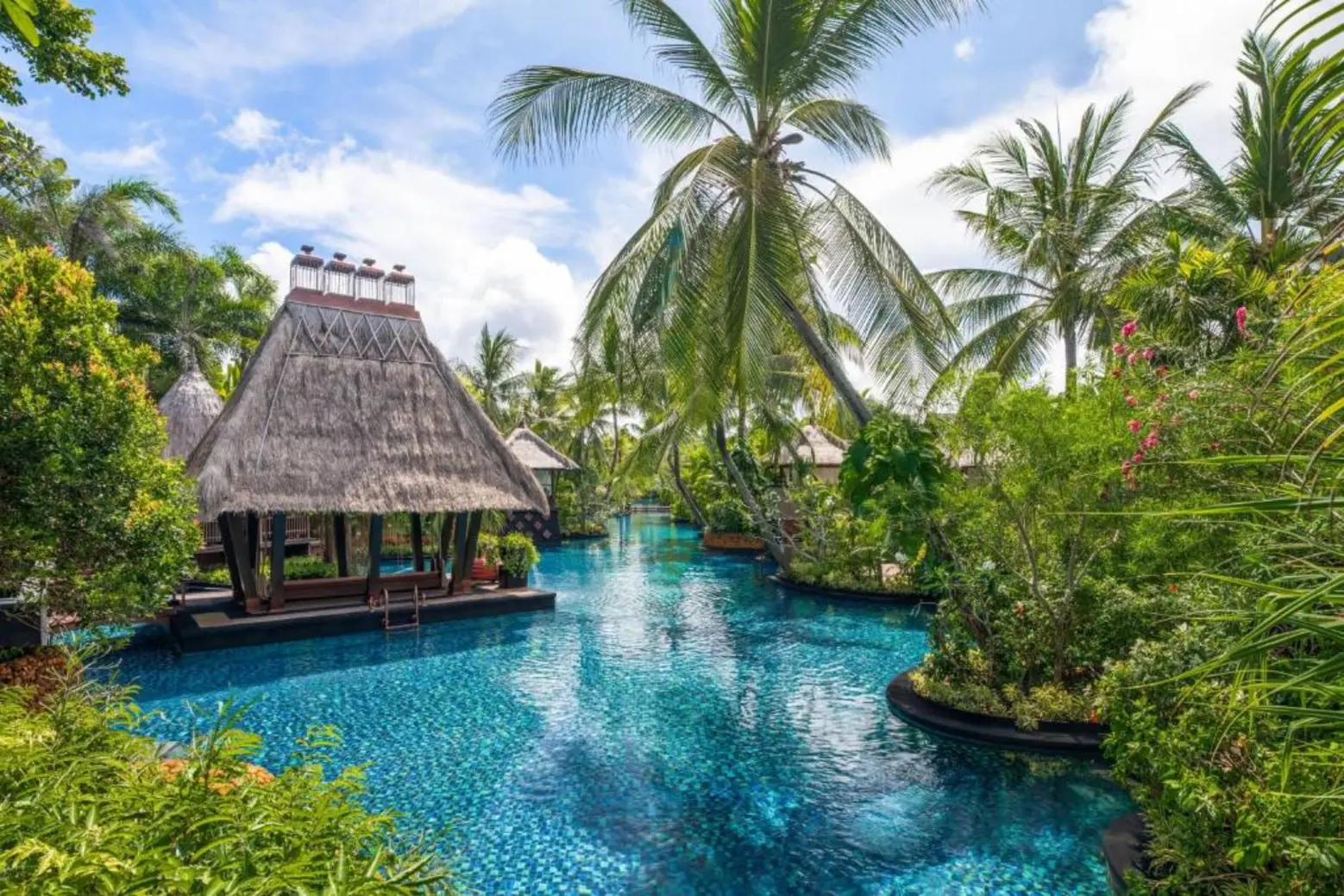
The resort’s centerpiece is a 3,668 sqm saltwater lagoon, perfect for relaxing swims when the ocean's waves are too intense. My Strand Villa offered ample space, a king-sized bedroom, and a marble bathroom with an oversized soaking tub. Outside, a private garden and pool provided a peaceful retreat, and a discreet gate led me directly to the beach with loungers and an umbrella waiting.

In need of relaxation after a long flight, I visited the Iridium Spa, where I indulged in a rejuvenating massage. The tranquil, temple-inspired setting was perfect for unwinding. The resort offers multiple pools and a fitness center for guests seeking activity or relaxation.
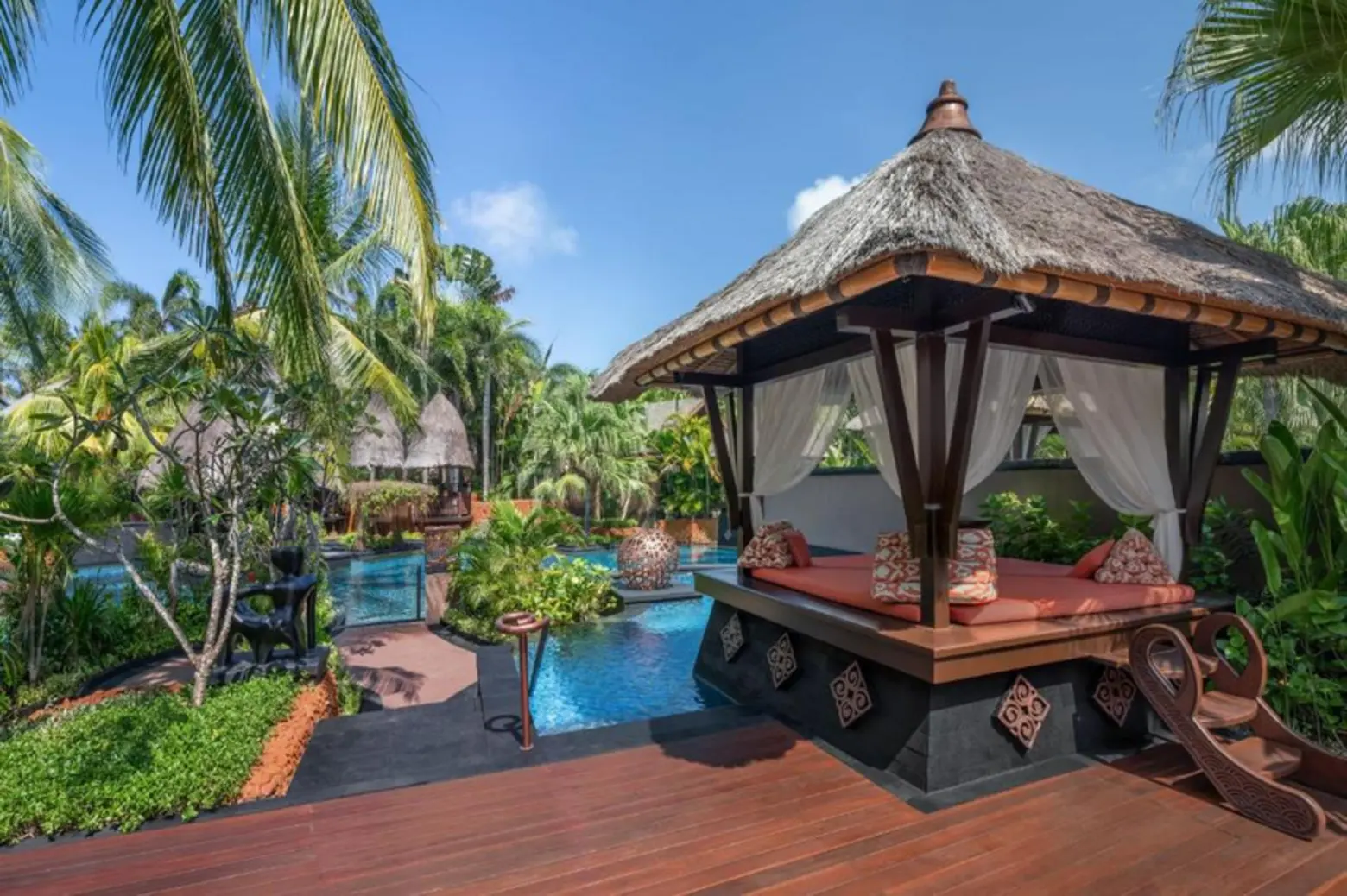
As evening arrived, I enjoyed cocktails at the St. Regis Bar with a perfect view of the nightly fire dance performance. Dining at the resort is diverse, with Boneka offering international dishes, Gourmand Deli serving relaxed meals, and Vista Bar providing casual beachside bites. Kayuputi, with its legendary pan-Asian haute cuisine, and Dulang, offering authentic Indonesian dining, stood out as highlights. Mornings started with beachside yoga and a delicious breakfast, setting a serene tone for the day.
After my stay at The St. Regis, I ventured inland to Ubud, Bali's cultural heart. Mandapa, a Ritz-Carlton Reserve, greeted me with an unassuming entry, but once inside, the view was nothing short of breathtaking. The resort’s name, meaning “temple” in Indonesian, is fitting as it sits nestled in a lush valley, with the sacred Ayung River flowing through a rainforest. A 100-year-old temple and working rice paddies complete the serene landscape, with each of the 35 suites and 25 villas blending seamlessly with nature.
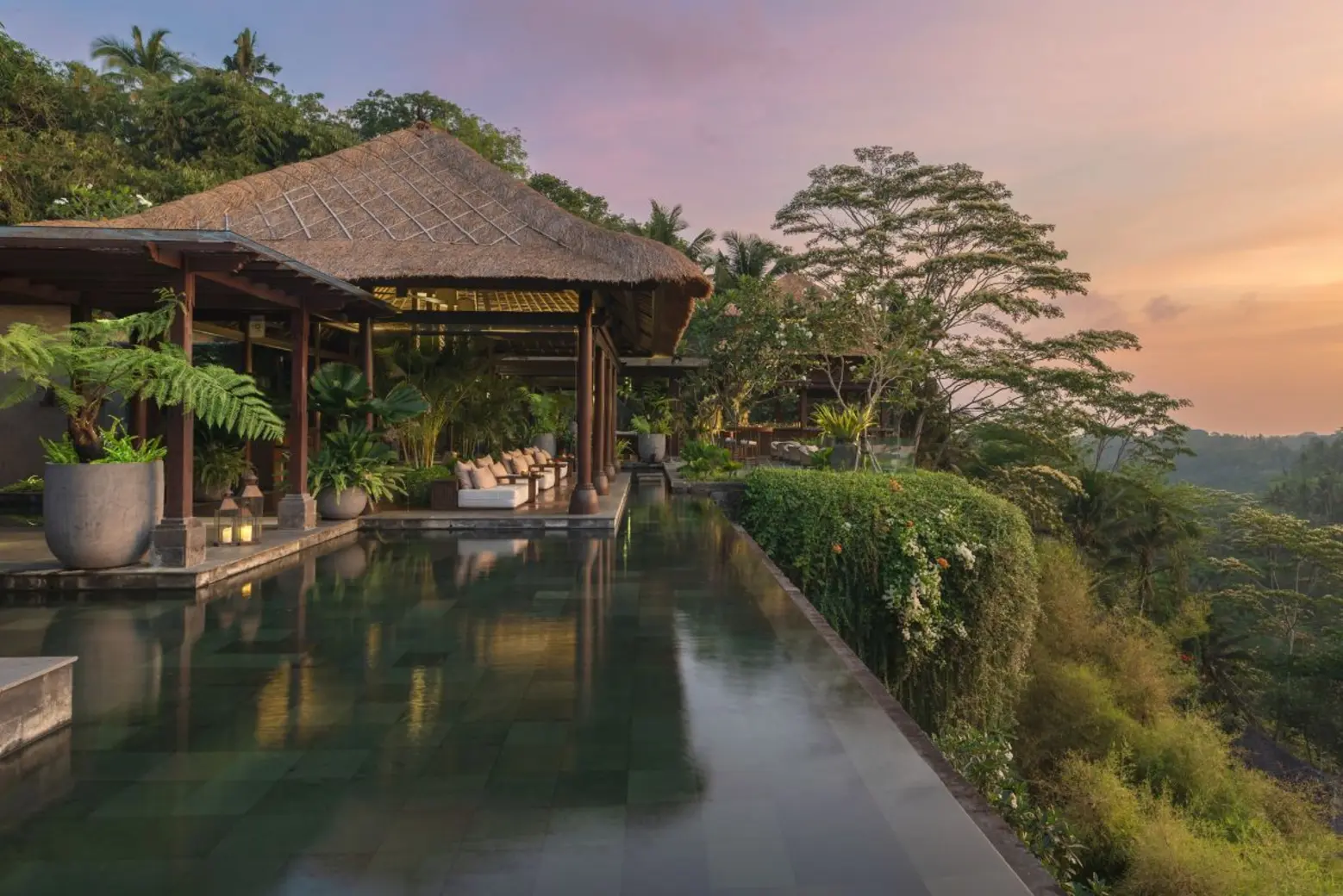
My one-bedroom pool villa was an extraordinary experience. With a private pool, tropical garden, and floor-to-ceiling windows, it offered unparalleled views of the rainforest. The indoor-outdoor design created an immediate connection to nature.

Dinner at Kubu, the resort’s riverside restaurant, featured Mediterranean-European dishes using locally sourced ingredients. Other dining options included the Pool Bar, offering casual meals, and Ambar, an upscale bar with expertly crafted cocktails and music, boasting panoramic views of the valley.
Mandapa is perfect for adventurers, with guided tours of Ubud’s famous rice terraces and waterfalls. For a more challenging experience, the trek up Mount Batur, Bali’s active volcano, rewards hikers with breathtaking views. Afterward, Mandapa’s riverside spa offers a holistic experience designed to align mind, body, and spirit through Balinese healing practices. The spa, with its yoga pavilion, meditation temple, and vitality pool, was the highlight of my stay, particularly the guided meditation and evening sound therapy sessions.
Beyond the resorts, Bali’s rich culture and natural beauty beckon. I visited Garuda Wisnu Kencana Cultural Park, home to the 122-meter statue of the Hindu god Wisnu, a modern masterpiece completed in 2018. The island’s spiritual heritage is evident in Uluwatu Temple, perched on a cliff and one of Bali’s holiest sites. Visitors can enjoy panoramic ocean views during the day and watch the mesmerizing Kecak dance at sunset.
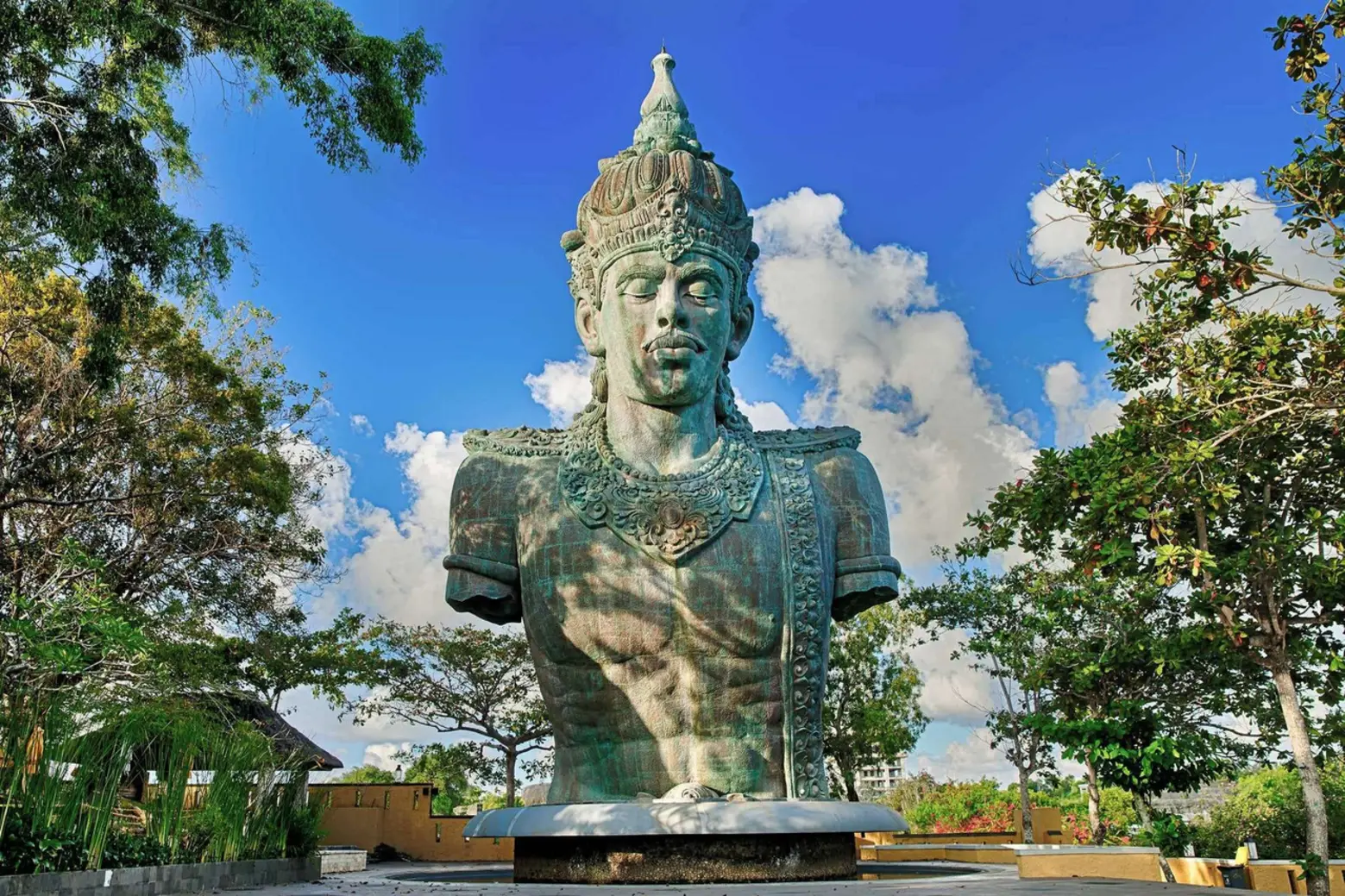
Bali also offers a unique cultural experience through "Nyepi," the Day of Silence, when the island shuts down completely for self-reflection and meditation. This remarkable tradition reflects the island’s deep spiritual roots.
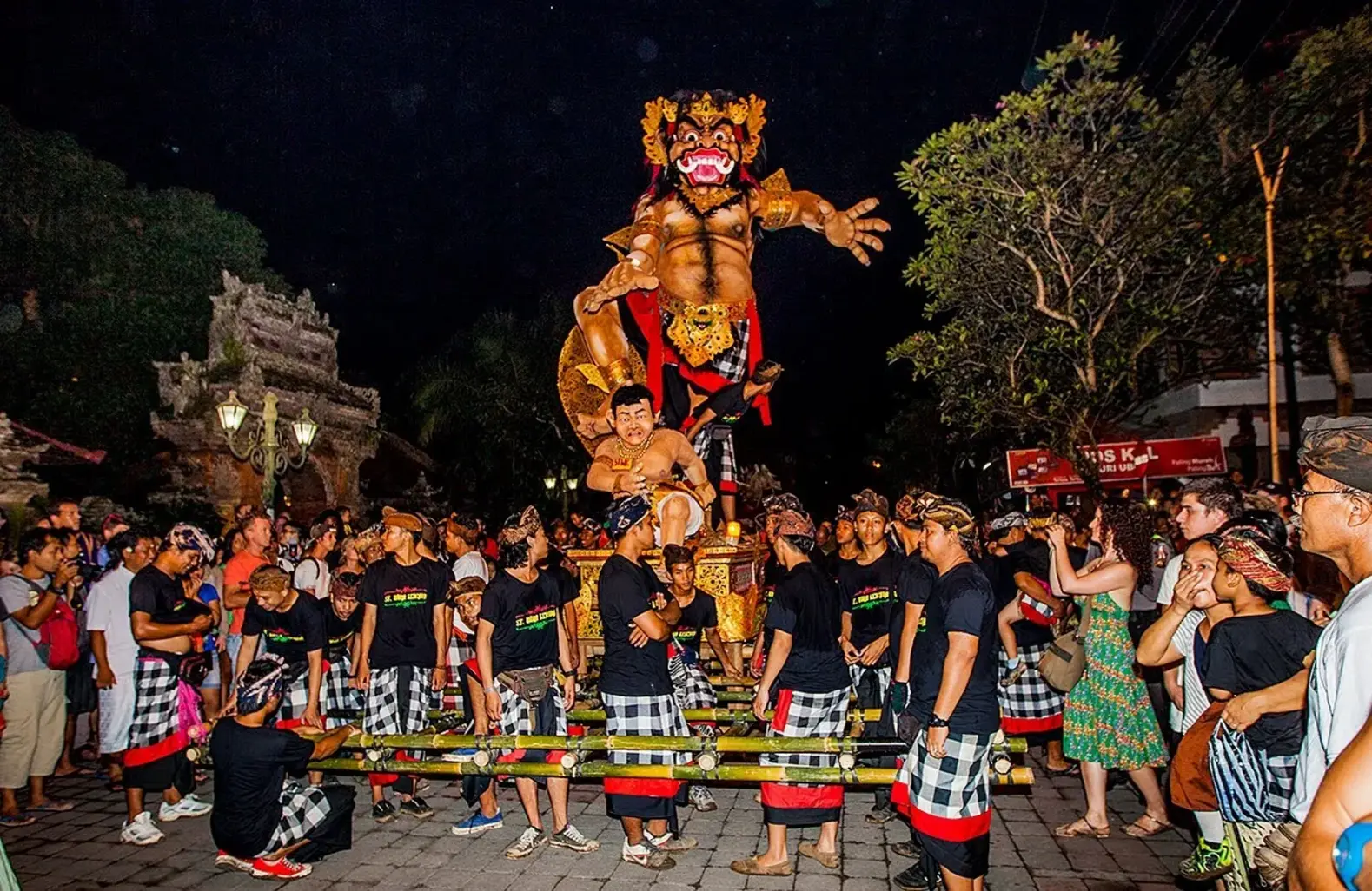
For those seeking plant-based dining, Bali is a paradise. Alchemy in Ubud pioneered Bali’s raw vegan movement, while restaurants like The Warung (Alila Villas Uluwatu) and Zest (Ubud) offer diverse, locally sourced vegetarian and vegan menus. Kynd Community in Seminyak and Earth Cafe & Market in both Seminyak and Ubud also serve Instagram-worthy plant-based meals that align with Bali’s emphasis on spiritual and ethical values.
Bali’s accessibility continues to improve with direct flights from cities such as Dubai, Doha, and Singapore, along with many connecting options through major hubs like Kuala Lumpur and Doha. Airlines such as Emirates, Qatar Airways, and Singapore Airlines offer comfortable travel options. Budget airlines like AirAsia also provide affordable regional connections, making it easier to reach Bali.
For travelers from Saudi Arabia heading to Bali, direct flights are currently unavailable, necessitating convenient connecting routes. The most common and efficient transit hubs include Dubai (DXB), Doha (DOH), Singapore (SIN), and Kuala Lumpur (KUL). Reputable airlines frequently operating these routes are Emirates, Qatar Airways, Singapore Airlines, and Malaysia Airlines, with Saudia also potentially offering codeshare or partner flights.